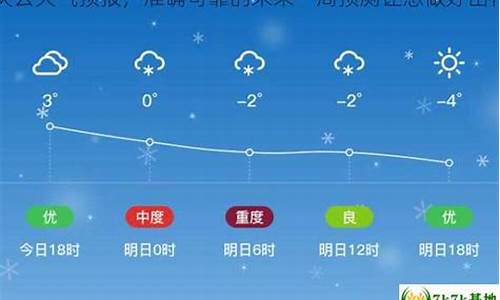天气允许的话permit_天气允许的话翻译
1.高中英语作文简单句
2.来自英文的10条自我保护建议
3.翻译句子
4.谁能帮我把这个英语句子的类型解释一下
5.典范英语8 1 翻译
6.独立主格结构例句
高中英语作文简单句

英语中的五种基本句型结构 一、句型1: Subject (主语) + Verb (谓语) 这种句型中的动词大多是不及物动词,所谓不及物动词,就是这种动词后不可以直接接宾语。常见的动词如:work, sing, swim, fish, jump, arrive, e, die, disappear, cry, happen等。如: 1) Li Ming works very hard.李明学习很努力。 2) The accident happened yesterday afternoon.事故是昨天下午发生的。 3)Spring is ing. 4) We have lived in the city for ten years. 二、句型2:Subject (主语) + Link. V(系动词) + Predicate(表语) 这种句型主要用来表示主语的特点、身份等。其系动词一般可分为下列两类: (1)表示状态。这样的词有:be, look, seem, *** ell, taste, sound, keep等。如: 1) This kind of food tastes delicious.这种食物吃起来很可口。 2) He looked worried just now.刚才他看上去有些焦急。 (2)表示变化。这类系动词有:bee, turn, get, grow, go等。如: 1) Spring es. It is getting warmer and warmer.春天到了,天气变得越来越暖和。 2) The tree has grown much taller than before.这棵树比以前长得高多了。 三、句型3:Subject(主语) + Verb (谓语) + Object (宾语) 这种句型中的动词一般为及物动词, 所谓及物动词,就是这种动词后可以直接接宾语,其宾语通常由名词、代词、动词不定式、动名词或从句等来充当。例: 1) He took his bag and left.(名词) 他拿着书包离开了。 2) Li Lei always helps me when I have difficulties. (代词)当我遇到困难时,李雷总能给我帮助。 3) She plans to travel in the ing May Day.(不定式)她打算在即将到来的“五一”外出旅游。 4) I don’t know what I should do next. (从句)我不知道下一步该干什么。 注意:英语中的许多动词既是及物动词,又是不及物动词。 四、句型4: Subject(主语)+Verb(谓语)+ Indirect object(间接宾语)+Direct object (直接宾语) 这种句型中,直接宾语为主要宾语,表示动作是对谁做的或为谁做的,在句中不可或缺,常常由表示“物”的名词来充当;间接宾语也被称之为第二宾语,去掉之后,对整个句子的影响不大,多由指“人”的名词或代词承担。引导这类双宾语的常见动词有:buy, pass, lend, give, tell, teach, show, bring, send等。如: 1) Her father bought her a dictionary as a birthday present.她爸爸给她买了一本词典作为生日礼物。 2)The old man always tells the children stories about the heroes in the Long March. 老人经常给孩子们讲述长征途中那些英雄的故事。 上述句子还可以表达为: 1)Her father bought a dictionary for her as a birthday present. 2)The old man always tells stories about the heroes to the children in the Long March. 五、句型5: Subject(主语)+Verb (动词)+Object (宾语)+Complement(补语) 这种句型中的“宾语 + 补语”统称为“复合宾语”。宾语补足语的主要作用或者是补充、说明宾语的特点、身份等;或者表示让宾语去完成的动作等。担任补语的常常是名词、形容词、副词、介词短语、分词、动词不定式等。如: 1)You should keep the room clean and tidy. 你应该让屋子保持干净整洁。(形容词) 2) We made him our monitor.(名词)我们选他当班长。 3) His father told him not to play in the street.(不定式)他父亲告诉他不要在街上玩。 4)My father likes to watch the boys playing basketball.(现在分词) 5) Yesterday I had a picture taken with o Americans.(过去分词) ● 常见的动词有: tell, ask, advise, help, want, would like, order, force, allow等。 ● 注意:动词have, make, let, see, hear, notice, feel, watch等后面所接的动词不定式作宾补时,不带to。如: 1) The boss made him do the work all day.老板让他整天做那项工作。 2) I heard her sing in the next room all the time last night.昨天晚上我听见她在隔壁唱了一个晚上。 独立主格结构 一) 独立主格结构的构成: 名词(代词)+现在分词、过去分词; 名词(代词)+形容词; 名词(代词)+副词; 名词(代词)+不定式; 名词(代词) +介词短语构成。 二) 独立主格结构的特点: 1)独立主格结构的逻辑主语与句子的主语不同,它独立存在。 2)名词或代词与后面的分词,形容词,副词,不定 式,介词等是主谓关系。 3)独立主格结构一般有逗号与主句分开。 举例: The test finished, we began our holiday.= When the test was finished, we began our holiday. 考试结束了,我们开始放假。 The president assassinated, the whole country was in deep sorrow.= After the president was assassinated, the whole country was in deep sorrow. 总统被谋杀了,举国上下沉浸在悲哀之中。 Weather permitting, we are going to visit you tomorrow. 如果天气允许,我们明天去看你。 This done, we went home. 工作完成后,我们才回家。 The meeting gone over, everyone tired to go home earlier. 会议结束后,每个人都想早点回家。 He came into the room, his ears red with cold. 他回到了房子里,耳朵冻坏了。 He came out of the library, a large book under his arm.他夹着本厚书,走出了图书馆。 三) With的复合结构作独立主格 表伴随时,既可用分词的独立结构,也可用with的复合结构。 with +名词(代词)+现在分词/过去分词/形容词/副词/不定式/介词短语 举例: He stood there, his hand raised. = He stood there, with his hand raise. 典型例题 The murder was brought in, with his hands ___ behind his back。 A. being tied B. having tied C. to be tied D. tied 答案D. with +名词(代词)+分词+介词短语结构。当分词表示伴随状况时,其主语常常用with来引导。由于本句中名词"手"与分词"绑"是被动关系,因此用过去分词,选D. 注意: 1) 独立主格结构使用介词的问题: 当介词是in时,其前后的两个名词均不加任何成分(如物主代词或冠词),也不用复数。但 with 的复合结构不受此限制 A robber burst into the room, knife in hand. ( hand前不能加his)。 2) 当表人体部位的词做逻辑主语时,及物动词用现在分 词,不及物动词用过去分词。 He lay there, his teeth set, his hand clenched, his eyes looking straight up. 典型例题:Weather___, we'll go out for a walk.A permitted B permitting C permits D for permitting 答案B. 本题中没有连词,它不是复合句,也不是并列句。 句中使用了逗号,且we 小写,可知其不是两个简单句。能够这样使用的只有独立主格或with的复合结构。据此判断,本句中使用的是独立结构,其结构为:名词+分词。 由于permit在这里翻译为'天气允许',表主动,应用现在分词,故选B。 如果不会判断独立结构作状语的形式,不妨将句子改为条件句,例如本句改为If weather permits, we'll go out for a walk. 然后将if 去掉,再将谓语动词改为非谓语动词即可。 不能“以貌取意”的常见句型例析 1.This is the last thing I would ever want to do. 这是我最不愿做的一件事情。 析“the last +to do;the last +定语从句”中的last的意思为“least willing/likely”,译为“最不愿意;最不可能”。 He's the last man I want to see.他是我最不想见的人。 He is the last person to tell a lie.他是最不可能撒谎的人。 She's the last woman I want to sit next to at dinner.她是我在宴会上最不愿与之挨着坐的女人。 2.One can't be too honest. 人越老实越好。 析句中“cannot...too...”意为“无论怎样……也不过分”或“越……越好”。该句型中的not可以换成 hardly,never或scarcely;too可以换成 over或enough等,意思不变。 You cannot be too careful.You cannot be over careful.=You cannot be careful enough.你越仔细越好。 A man can never have too many friends.朋友越多越好。 3.It's a wise man that never makes mistakes. 无论多么聪明的人,也难免犯错误。 析“It is a +形容词+名词+that...”结构是一个特殊的习惯用法,意思是“无论怎样的……也不……”。真正的句子意思与字面意思相反,它具有含蓄的让步意味,切不可望文生义、译成强调句型。 It's a long lane that has no turning.无论怎样长的巷子也有转弯处。(引申意义为:耐心等待终会时来运转。) It's a good horse that never stumbles.再好的马也有失前蹄的时候。(引申意义为:金无足赤,人无完人。) 4?I'm too anxious to know the result. 我极想知道结果。 析英语中“too...to...”结构表示“太……以致不”的意思。例如:The star is too *** all to see.但是,如果too后形容词表示主语的状态、心理活动、情感态度(常见的有glad,easy,ready,anxious,eager, willing,happy等),并与其后的不定式构成固定搭配,这时too含有肯定意义,表示“very,extremely”的意思。 They are too anxious to leave.他们急于离去。 Mr.Smith was too eager to see her.史密斯先生极想见到她。 5.It's three years since he was a teacher. 他不当教师已经三年了。 析在“It is some time since +主语+谓语+其它成分。”这一结构中,如果从句谓语动词是非延续性动词,那么时间的计算就从该动作的发生开始算起。 It‘s three years since he joined the army.他参军已经三年了。 如果从句谓语动词是延续性动词,时间就要从该动作的结束算起。 It's many years since they lived here.他们不在这儿住已经好多年了。 6.All that glitters is not gold. 闪光的东西不一定都是金子。 析在句中当不定代词all,both,every及 every的复合词,副词always,often,entirely与 not一起使用时,表示部分否定,意思是“并非都是”,“不是每个人都”等。 I don't remember all these formulas.这些公式我并非全都记得。 Every man cannot do it.并非每个人都能做这个。 I don't entirely agree with you.我并不完全同意你的看法。 注意:当all,both,every等词和带im-,in-,un-,dis-等表示否定意义的前缀的词连用时,表示全部否定的意义。 All your answers are incorrect.你所有的答案都不正确。 表示全部否定时,我们常使用no,not,nobody,nothing,never,nowhere,neither等词。 None of the teachers *** oke.这些老师都不抽烟。 7.The mountain is not valuable because it is high. 山并不因为高而具有价值。(山不在高) 析含有原因状语从句的主从复合句,形式上虽然否定主句的谓语,然而意义上则是否定该原因状语,译为“并不因为……而……”。 You cannot walk away just because someone tells you he doesn't want to buy.你不能仅仅因为他告诉你不买就走开。 Galileo was not ready to accept it just because Aristotle had said so.伽利略并不只是因为亚里斯多德说过某事如何如何,就轻易相信它。 8.I didn't pretend to understand what he said. 我假装没懂他说的话。 析常用动词pretend,happen的否定形式有两种:既可以否定pretend,也可以否定其后的不定式,其意义不变。 I didn't happen to be there.=I happened not to be there.我恰巧不在那儿。 They didn't pretend to see me when I went by.=They pretended not to see me when I went by.当我经过的时候,他们假装没有看见我。 9?Let's have a rest under the big tree. It's nice and cool here. 让我们在大树下歇会吧。这儿很凉快。 析nice and,good and都表示“很,非常,完全”的意思。and前的形容词实质上起副词作用,修饰后边的形容词,表示强调。 I am good and ready.我都准备好了。 It is good and cold in the morning.早上非常冷。 独立主格结构 一) 独立主格结构的构成: 名词(代词)+现在分词、过去分词; 名词(代词)+形容词; 名词(代词)+副词; 名词(代词)+不定式; 名词(代词) +介词短语构成。 二) 独立主格结构的特点: 1)独立主格结构的逻辑主语与句子的主语不同,它独立存在。 2)名词或代词与后面的分词,形容词,副词,不定 式,介词等是主谓关系。 3)独立主格结构一般有逗号与主句分开。 举例: The test finished, we began our holiday.= When the test was finished, we began our holiday. 考试结束了,我们开始放假。 The president assassinated, the whole country was in deep sorrow.= After the president was assassinated, the whole country was in deep sorrow. 总统被谋杀了,举国上下沉浸在悲哀之中。 Weather permitting, we are going to visit you tomorrow. 如果天气允许,我们明天去看你。 This done, we went home. 工作完成后,我们才回家。 The meeting gone over, everyone tired to go home earlier. 会议结束后,每个人都想早点回家。 He came into the room, his ears red with cold. 他回到了房子里,耳朵冻坏了。 He came out of the library, a large book under his arm.他夹着本厚书,走出了图书馆。 三) With的复合结构作独立主格 表伴随时,既可用分词的独立结构,也可用with的复合结构。 with +名词(代词)+现在分词/过去分词/形容词/副词/不定式/介词短语 举例: He stood there, his hand raised. = He stood there, with his hand raise. 典型例题 The murder was brought in, with his hands ___ behind his back。 A. being tied B. having tied C. to be tied D. tied 答案D. with +名词(代词)+分词+介词短语结构。当分词表示伴随状况时,其主语常常用with来引导。由于本句中名词"手"与分词"绑"是被动关系,因此用过去分词,选D. 注意: 1) 独立主格结构使用介词的问题: 当介词是in时,其前后的两个名词均不加任何成分(如物主代词或冠词),也不用复数。但 with 的复合结构不受此限制 A robber burst into the room, knife in hand. ( hand前不能加his)。 2) 当表人体部位的词做逻辑主语时,及物动词用现在分 词,不及物动词用过去分词。 He lay there, his teeth set, his hand clenched, his eyes looking straight up. 典型例题:Weather___, we'll go out for a walk.A permitted B permitting C permits D for permitting 答案B. 本题中没有连词,它不是复合句,也不是并列句。 句中使用了逗号,且we 小写,可知其不是两个简单句。能够这样使用的只有独立主格或with的复合结构。据此判断,本句中使用的是独立结构, 其结构为:名词+分词。 由于permit在这里翻译为'天气允许',表主动,应用现在分词,故选B。 如果不会判断独立结构作状语的形式,不妨将句子改为条件句,例如本句改为If weather permits, we'll go out for a walk. 然后将if 去掉,再将谓语动词改为非谓语动词即可。 不能“以貌取意”的常见句型例析 1.This is the last thing I would ever want to do. 这是我最不愿做的一件事情。 析“the last +to do;the last +定语从句”中的last的意思为“least willing/likely”,译为“最不愿意;最不可能”。 He's the last man I want to see.他是我最不想见的人。 He is the last person to tell a lie.他是最不可能撒谎的人。 She's the last woman I want to sit next to at dinner.她是我在宴会上最不愿与之挨着坐的女人。 2.One can't be too honest. 人越老实越好。 析句中“cannot...too...”意为“无论怎样……也不过分”或“越……越好”。该句型中的not可以换成 hardly,never或scarcely;too可以换成 over或enough等,意思不变。 You cannot be too careful.You cannot be over careful.=You cannot be careful enough.你越仔细越好。 A man can never have too many friends.朋友越多越好。 3.It's a wise man that never makes mistakes. 无论多么聪明的人,也难免犯错误。 析“It is a +形容词+名词+that...”结构是一个特殊的习惯用法,意思是“无论怎样的……也不……”。真正的句子意思与字面意思相反,它具有含蓄的让步意味,切不可望文生义、译成强调句型。 It's a long lane that has no turning.无论怎样长的巷子也有转弯处。(引申意义为:耐心等待终会时来运转。) It's a good horse that never stumbles.再好的马也有失前蹄的时候。(引申意义为:金无足赤,人无完人。) 4?I'm too anxious to know the result. 我极想知道结果。 析英语中“too...to...”结构表示“太……以致不”的意思。例如:The star is too *** all to see.但是,如果too后形容词表示主语的状态、心理活动、情感态度(常见的有glad,easy,ready,anxious,eager, willing,happy等),并与其后的不定式构成固定搭配,这时too含有肯定意义,表示“very,extremely”的意思。 They are too anxious to leave.他们急于离去。 Mr.Smith was too eager to see her.史密斯先生极想见到她。 5.It's three years since he was a teacher. 他不当教师已经三年了。 析在“It is some time since +主语+谓语+其它成分。”这一结构中,如果从句谓语动词是非延续性动词,那么时间的计算就从该动作的发生开始算起。 It‘s three years since he joined the army.他参军已经三年了。 如果从句谓语动词是延续性动词,时间就要从该动作的结束算起。 It's many years since they lived here.他们不在这儿住已经好多年了。 6.All that glitters is not gold. 闪光的东西不一定都是金子。 析在句中当不定代词all,both,every及 every的复合词,副词always,often,entirely与 not一起使用时,表示部分否定,意思是“并非都是”,“不是每个人都”等。 I don't remember all these formulas.这些公式我并非全都记得。 Every man cannot do it.并非每个人都能做这个。 I don't entirely agree with you.我并不完全同意你的看法。 注意:当all,both,every等词和带im-,in-,un-,dis-等表示否定意义的前缀的词连用时,表示全部否定的意义。 All your answers are incorrect.你所有的答案都不正确。 表示全部否定时,我们常使用no,not,nobody,nothing,never,nowhere,neither等词。 None of the teachers *** oke.这些老师都不抽烟。 7.The mountain is not valuable because it is high. 山并不因为高而具有价值。(山不在高) 析含有原因状语从句的主从复合句,形式上虽然否定主句的谓语,然而意义上则是否定该原因状语,译为“并不因为……而……”。 You cannot walk away just because someone tells you he doesn't want to buy.你不能仅仅因为他告诉你不买就走开。 Galileo was not ready to accept it just because Aristotle had said so.伽利略并不只是因为亚里斯多德说过某事如何如何,就轻易相信它。 8.I didn't pretend to understand what he said. 我假装没懂他说的话。 析常用动词pretend,happen的否定形式有两种:既可以否定pretend,也可以否定其后的不定式,其意义不变。 I didn't happen to be there.=I happened not to be there.我恰巧不在那儿。 They didn't pretend to see me when I went by.=They pretended not to see me when I went by.当我经过的时候,他们假装没有看见我。 9?Let's have a rest under the big tree. It's nice and cool here. 让我们在大树下歇会吧。这儿很凉快。 析nice and,good and都表示“很,非常,完全”的意思。and前的形容词实质上起副词作用,修饰后边的形容词,表示强调。 I am good and ready.我都准备好了。 It is good and cold in the morning.早上非常冷。
来自英文的10条自我保护建议
写在前面:这是一篇翻译文章,我早上在朋友圈看到有007的战友张贴了出来,于是我自不量力的翻译了一下,水平有限,里面的观点也只供侧面参考,毕竟作者只是拥有SARS的经验,在这次的新型冠状病毒爆发之际,他并没有在我们第一线。但是其中有一些建议,比如门把手与公筷,都是具有很好的启发意义的。
关于第十点照顾病人的建议,还是参照钟南山院士的建议,一旦出现发烧情况,请尽早就医,不要拖延,否则如果真的是,将有20%的可能直接发展到重症的阶段。我把这条贴上来,也仅仅是为了让那些有轻微咳嗽而且不在武汉也没有接触史的朋友再多加一份小心,请不要误读。
()里面的文字是我实在不吐不快的一些看法,希望不会影响大家的阅读。
更权威的办法还是要看人民日报发布的抵抗指南。
好了,下面是正文翻译:
*******************************
在整个SARS肆虐期间,我旅行遍了全中国,我采访了很多感染上这种病毒的人,很多治疗这种疾病的医生和护士,政府官员和警察,几乎是所有人了。
但我从来没有担心,我可能被感染,即使我和这些得病的患者在同一个房间里。
那仅仅因为我知道要该采用什么样的预防措施,以下就是其中非常重要的10个。
第1点,当你要出门的时候,戴上手套,冬天的羊毛或者是外出时的手套,并且在坐地铁公交和在任何的公共场所,都要确保它们在你的手上。
第2点,如果你在一个社交场合一定要把你的手套脱掉的时候,比如说你要跟人握个手或者一起吃饭,你要确保你的双手不要碰触到自己的脸和眼睛,你别管那个地方到底有多么的痒。让你的双手远离你的脸颊。
一定要切记,在你重新戴上手套之前,一定要用温水和肥皂洗你的双手,使劲的搓你的指尖。然后这个时候再把手套带上。
第3点每天都要更换手套,彻底的把手套清洗干净,并且避免携带潮湿的手套。
第4点。出门戴口罩很难说是会起效果的,就算是在室内也很难帮助你。
大多数的口罩,在佩戴过一次到两次就不能用了。
如果你每一天都用同一个口罩,那你还不如不带它呢。这确实是挺让人恶心的,如果你的嘴巴和鼻子被一个充满了臭味儿的口罩所覆盖的,那么它一定会吸引更多的细菌的。
我在一场流感中很少戴口罩,而我已经经历了超过30次的流感大爆发了。
而我采用的方式是远离人群,我和每一个人都保持半米的距离。
如果有人有过咳嗽或者打喷嚏这样的症状,我就会要求他们戴上口罩,这样可以保护我不被他们所喷出的飞沫感染。
而如果他们拒绝了,我就会离他们有一米远,或者干脆就离开。
不要和人握手和拥抱,礼貌的拒绝他们,并且说为了我们大家好,我们还是不要在流感中保持这么亲密的距离了。
( 关于这点我是持非常保留的意见,我不得不说他可能太自信了,而我们还是保持口罩的勤带勤换吧 )
( 而且我还发现在这场大灾难中,我身边的很多人还是过于盲目自信,过于习惯依靠自己的经验和判断了,就在佩戴口罩这样一个行为中,他们说,说明书上写着12个小时才需要更换呀,或者说,网上说电视上说3~4个小时才需要更换,于是他们会带着一次出门,又一次出门,每次出去半个小时啊,那不是可以带8天吗?我们必须清醒的认识到,只要你出门就有可能在口罩上携带了这种病毒,那么一旦携带了这种病毒,那就不分什么期限了,你现在还能保证病毒在口罩的外面,但是如果你下一次还需要带这个口罩,病毒可能在这个过程中就已经慢慢侵蚀到了口罩的内部,那你岂不是把那一个大病毒主动的吸到了自己的嘴里吗? )
第5点在你的家里,立即把所有的毛巾从你的卧室和厨房拿走,现在你需要更换新的毛巾,并且保证每个人都有自己独立的毛巾。
你要再三的强调,每一个家庭成员只能使用自己的毛巾,并且禁止去碰触他人的毛巾。
每个毛巾一星期要洗两次。
潮湿的毛巾会给病毒提供一个非常好的环境,这些包括了普通的流感,当然也包括了冠状病毒。
第6点。小心你的门把手。如果有可能的话,尽可能用你的胳膊肘和肩膀来开门和关门。带着手套去开关门,或者在每次开门关门之后都要洗手。
如果在你的家里有任何人生了病,不管这病是不是冠状病毒,你都要定期的去洗你的门把手。
同样的你也要小心那些很有可能被共用的东西,比如说楼梯的扶手,书桌,手机,玩具,平板电脑,任何有可能被共同使用的东西。
如果你只是使用自己的私人物品,那你没有问题,但是如果你需要给别人递过去他的手机或者一些厨具,或者你用了别人的电脑,你一定要注意,千万不要碰触自己的脸和眼睛,并且你应该在使用过这些东西之后立刻去洗手。
第7点,如果你和其他人一起吃饭,不要用你自己的筷子和餐具去碰触摆在桌子上的食物,而且你要告诉自己的孩子不要喝别人喝剩下的饮料。
大家一起用餐,并且用自己的筷子去盘子里夹菜,到自己的碗里再吃,这是一件太有传统的事情了——在这场瘟疫过去之前,千万别这么做了。
应该准备一个公筷或者是公用的勺子,每人一个,加菜的时候用公筷,吃饭的时候用自己的。
在两餐之间彻底的清洗那些盘盘筷筷,千万不要去餐厅了,因为那里的卫生条件很堪忧。
( 即使这么做,我在翻译的时候也还是因为有些担忧,感觉这样的做法,其实也还是有隐患的,因为如果一个人身上是有潜在的病毒的话,他也是可以通过公筷传到菜上去的 )
( 与其这样,不如做的更彻底一点,大家彻底的分餐制 )
第8点绝对不要买卖,自己屠宰或者消费任何活着的动物,直到你知道这次病毒爆发到底起源于什么物种。
第9点,如果天气允许的话,在你的家里或者工作场合打开窗户,让你生存的环境可以做到空气流通。病毒在一个通风良好的环境里是很难苟延残喘的。当然如果外面天气是寒冷的,是有雾霾的,是极端恶劣的,那么最好还是关上窗户,保持暖和吧。
第10点也是最后一点,如果你非常关心的朋友或者家人已经发了烧,那你在接近他的时候,一定要把你的口罩戴得严严实实的,并且在他的脸上也戴一个。
当你给这个病人换口罩的时候,一定要非常非常的小心。你必须这样认为,你的保护对象如此的虚弱,这个口罩上面已经充满了病毒,你要戴上乳胶手套去摘它,并且把这个口罩和手套一起扔到一个密封的塑料袋里,把垃圾袋扔到垃圾箱里去。
你在给病人用温水和肥皂清洗面部的时候也要戴着乳胶手套,并且用一次性的纸巾或者棉签来擦拭,用完之后要把这些垃圾扔到密封的塑料袋里,然后才能扔进你的垃圾箱。
当你照顾你的这个密友和亲人的时候,一定要穿着长袖的衣服来遮挡你的身体。
用加热的肥皂水清洗这些病人碰触过的一切东西,包括被单,毛巾,还有碗筷。
如果家里有足够的地方,一定要把这生病的人放在单独的一个房间或者是房间的角落。你要让他处在一个自己很舒服又跟其他家庭成员能够隔开的地方。
如果天气允许的话,要开窗户通风,但是要确保这个风不会顺从病人所在的房间,刮到其他的地方,而要从其他地方刮过病人的房间。当然如果很冷的话就不要这样做了,因为这时候你的朋友或者家人在寒冷面前是非常虚弱的。
翻译句子
我们的街道比较狭窄,而且街道两边还都有停车.
with 只是说明一种状态.
独立主格的话 不会省略主语的
--
独立主格
1独立主格结构的构成:名词(代词)+现在分词、过去分词;
名词(代词)+形容词;
名词(代词)+副词;
名词(代词)+不定式;
名词(代词) +介词短语构成。
独立主格结构的特点:
1)独立主格结构的逻辑主语与句子的主语不同,它独立存在。
2)名词或代词与后面的分词,形容词,副词,不定式,介词等是主谓关系。
3)独立主格结构一般有逗号与主句分开。
例如: The test finished, we began our holiday. = When the test was finished, we began our holiday. 考试结束了,我们开始放假。
The president assassinated, the whole country was in deep sorrow. = After the president was assassinated, the whole country was in deep sorrow. 总统被谋杀了,举国上下沉浸在悲哀之中。
Weather permitting, we are going to visit you tomorrow. 天气允许,我们明天去看你。
This done, we went home. 工作完成后,我们才回家。
The meeting gone over, everyone tired to go home earlier. 会议结束后,每个人都想早点回家。
He came into the room, his ears red with cold. 他回到了房子里,耳朵冻得红通通的。
He came out of the library, a large book under his arm. 他夹着本厚书,走出了图书馆
2 with的复合结构作独立主格
表示伴随情况时,既可用分词的独立结构,也可用with的复合结构:with +名词(代词)+现在分词/过去分词/形容词/副词/不定式/介词短语。例如:
He stood there, his hand raised. = He stood there, with his hand raise.他举手着站在那儿。
典型例题
The murderer was brought in, with his hands ___ behind his back。
A. being tied B. having tied C. to be tied D. tied
答案D. with +名词(代词)+分词+介词短语结构。当分词表示伴随状况时,其主语常常用with来引导。由于本句中名词"手"与分词"绑"是被动关系,因此用过去分词,选D.
注意:
1) 独立主格结构使用介词的问题: 当介词是in时,其前后的两个名词均不加任何成分(如物主代词或冠词),也不用复数。但 with 的复合结构不受此限制。例如:A robber burst into the room, knife in hand.(hand前不能加his)劫匪冲进房间,手里拿着刀。
2) 当表示人体部位的词做逻辑主语时,及物动词用现在分词,不及物动词用过去分词。例如:
He lay there, his teeth set, his hand clenched, his eyes looking straight up.
他躺在那儿,牙紧咬,双手握拳,两眼直勾勾看着上面。
典型例题:
Weather___, we”ll go out for a walk.
A permitted B permitting C permits D for permitting
答案B. 本题中没有连词,它不是复合句,也不是并列句。 句中使用了逗号,且we 小写,可知其不是两个简单句。能够这样使用的只有独立主格或with的复合结构。据此判断,本句中使用的是独立结构,其结构为:名词+分词。 由于permit在这里翻译为”天气允许”,表主动,应用现在分词,故选B。
如果不会判断独立结构作状语的形式,不妨将句子改为条件句,例如本句改为If weather permits, we”ll go out for a walk. 然后将if 去掉,再将谓语动词改为非谓语动词即可。
再有不懂的加我Q,121393435
回答者: 天生自弃难丽质 - 魔法学徒 一级 2-21 17:32
我来评论>>
评价已经被关闭 目前有 0 个人评价
好
50% (0) 不好
50% (0)
相关内容
求独立主格结构例句 这是独立主格结构吗? 独立主格结构怎么用 独立主格结构练习题 独立主格结构什么时候用完成时?更多相关问题>>
查看同主题问题:主格 结构
其他回答 共 3 条
独立主格
1独立主格结构的构成:名词(代词)+现在分词、过去分词;
名词(代词)+形容词;
名词(代词)+副词;
名词(代词)+不定式;
名词(代词) +介词短语构成。
独立主格结构的特点:
1)独立主格结构的逻辑主语与句子的主语不同,它独立存在。
2)名词或代词与后面的分词,形容词,副词,不定式,介词等是主谓关系。
3)独立主格结构一般有逗号与主句分开。
例如: The test finished, we began our holiday. = When the test was finished, we began our holiday. 考试结束了,我们开始放假。
The president assassinated, the whole country was in deep sorrow. = After the president was assassinated, the whole country was in deep sorrow. 总统被谋杀了,举国上下沉浸在悲哀之中。
Weather permitting, we are going to visit you tomorrow. 天气允许,我们明天去看你。
This done, we went home. 工作完成后,我们才回家。
The meeting gone over, everyone tired to go home earlier. 会议结束后,每个人都想早点回家。
He came into the room, his ears red with cold. 他回到了房子里,耳朵冻得红通通的。
He came out of the library, a large book under his arm. 他夹着本厚书,走出了图书馆
2 with的复合结构作独立主格
表示伴随情况时,既可用分词的独立结构,也可用with的复合结构:with +名词(代词)+现在分词/过去分词/形容词/副词/不定式/介词短语。例如:
He stood there, his hand raised. = He stood there, with his hand raise.他举手着站在那儿。
典型例题
The murderer was brought in, with his hands ___ behind his back。
A. being tied B. having tied C. to be tied D. tied
答案D. with +名词(代词)+分词+介词短语结构。当分词表示伴随状况时,其主语常常用with来引导。由于本句中名词"手"与分词"绑"是被动关系,因此用过去分词,选D.
注意:
1) 独立主格结构使用介词的问题: 当介词是in时,其前后的两个名词均不加任何成分(如物主代词或冠词),也不用复数。但 with 的复合结构不受此限制。例如:A robber burst into the room, knife in hand.(hand前不能加his)劫匪冲进房间,手里拿着刀。
2) 当表示人体部位的词做逻辑主语时,及物动词用现在分词,不及物动词用过去分词。例如:
He lay there, his teeth set, his hand clenched, his eyes looking straight up.
他躺在那儿,牙紧咬,双手握拳,两眼直勾勾看着上面。
典型例题:
Weather___, we”ll go out for a walk.
A permitted B permitting C permits D for permitting
答案B. 本题中没有连词,它不是复合句,也不是并列句。 句中使用了逗号,且we 小写,可知其不是两个简单句。能够这样使用的只有独立主格或with的复合结构。据此判断,本句中使用的是独立结构,其结构为:名词+分词。 由于permit在这里翻译为”天气允许”,表主动,应用现在分词,故选B。
如果不会判断独立结构作状语的形式,不妨将句子改为条件句,例如本句改为If weather permits, we”ll go out for a walk. 然后将if 去掉,再将谓语动词改为非谓语动词即可。
前面的了解就好了,后面的不需要记忆很多的
参考资料:
----
2. With的复合结构作独立主格
表伴随时,既可用分词的独立结构,也可用with的复合结构。
with +名词(代词)+现在分词/过去分词/形容词/副词/不定式/介词短语
谁能帮我把这个英语句子的类型解释一下
这个是独立主格结构。
“独立主格结构”在句中的功能就相当于一个带有自己主语的非限制性状语从句。众所周知非限制性从句通常以主句的某一成分作为自己的逻辑主语,从而依附于主句。而有些非限制性从句和无动词从句带有自己的主语,在结构上与主句不发生关系,因此成为独立主格结构。其实,虽然叫做独立主格结构,并不是真正的独立,它还是一种从属分句,在句中有多种作用。如:表原因、表条件、表方式、表伴随、表时间等,在句中通常起状语作用。 独立主格结构主要用于描绘性文字中,其作用相当于一个状语从句,常用来表示时间、原因、条件、行为方式或伴随情况等。
我觉得你这个句子就是表示一种行为方式。
再给你举几个独立主格的句子。
1) 表示时间 The meeting being over, all of us went home. 开完会后我们都回家了。the meeting being over相当于when the meeting was over Her work done, she sat down for a cup of tea. 她干完了活,坐下来喝茶。her work done相当于when her work was done 2) 表示条件 The condition being favorable, he may succeed. 若条件有利,他或许能成功。If the condition is favorable 3) 表示原因 There being no taxis, we had to walk. 没有出租车,我们只好步行。Since there was no taxis, He wrapped her up with great care, the night being dark and frosty. 夜又黑又冷,所以他把她裹得严严实实的。as the night was dark and frosty 4) 表示伴随情况 Almost all metals are good conductors, silver being the best of all. 几乎所有的金属都是良导体,而银则是最好的导体。(=Almost all metals are good conductors,and silver is the best of all.) 5) 表示补充说明 We redoubled our efforts, each man working like two. 我们加倍努力,一个人干两个人的活。
(三) 独立主格结构的构成
名词(代词)+现在分词、过去分词;Weather premitting, we will have a picnic tommorrow 名词(代词)+形容词;the condition favorable....(上有此句) 名词(代词)+副词;the meeting (being) over....(上也有此句) There being+名词 there being nothing else to do, we went home 名词(代词)+不定式;She proposed a picnic, she herself to pay the railway tickets, and Mary to provide the food. 名词(代词) +介词短语 the teacher entered the classroom, book in hand It being + 名词:It being X'mas, the goverment office was closed
(四) 独立主格结构的特点与例句
(1)独立主格结构的逻辑主语与句子的主语不同,它独立存在。 2)名词或代词与后面的分词,形容词,副词,不定式,介词存在逻辑上的主谓关系,即逻辑主语为动作执行者。 3)独立主格结构一般有逗号与主句分开。 举例:(一) 1) 名词/代词+形容词 The men moved slowly forward, neck deep in the water, with their officers guiding them. It stood silent in the noon sunlight, its door open. 2) 名词/代词+现在分词 Winter coming, it gets colder and colder. 冬天来了,天气越来越冷了。 The rain having stopped, he went out for a walk. 雨停了,他出去散步。 The question being settled, we wound up the meeting. 问题解决之后,我们结束了会议。 3) 名词/代词+过去分词 “Marquis,” said the boy, turning to the man, his eyes opened wide, and his right hand raised. 4) 名词/代词(主格)+不定式 We shall assemble at ten forty-five, the procession to start moving at precisely eleven. 我们十点四十五分集合,队伍十一点准时出发。 Here are the first two volumes, the third one to come out next month. 这是前两卷,第三卷将于下月问世。 We divided the work, he to clean the windows and I to sweep the floor. 我们进行了分工,他擦窗户,我扫地。 The two boys said good-bye to each other, one to go home, the other to go to his friend’s. 两个男孩彼此道了别,一个回了家,另一个去了他朋友家。 5) 名词/代词+介词短语 I followed him here, climbed in, sword in hand. The huntsman entered the forest, gun in hand. 那位猎人手里提着枪走进了树林。 He sat at the table, coat off, head down, and pen in hand. 6) 名词/代词+副词 Nobody in, the thief took a lot of things away. Lunch over, he left the house. But he was thinking. 7) 名词/代词+名词 he fought the wolf, a stick his only weapon. 他和狼搏斗着,唯一的武器是一根棍棒。 (二) The test finished, we began our holiday. = When the test was finished, we began our holiday. 考试结束了,我们开始放假。 The president assassinated, the whole country was in deep sorrow. = After the president was assassinated, the whole country was in deep sorrow. 总统被谋杀了,举国上下沉浸在悲哀之中。 Weather permitting, we are going to visit you tomorrow. 如果天气允许,我们明天去看你。 This done, we went home. 工作完成后,我们才回家。 The meeting gone over, everyone tired to go home earlier. 会议结束后,每个人都想早点回家。 He came into the room, his ears red with cold. 他回到了房子里,耳朵冻坏了。 He came out of the library, a large book under his arm. 他夹着本厚书,走出了图书馆 2. With的复合结构作独立主格 表伴随时,既可用分词的独立结构,也可用with的复合结构。 with +名词(代词)+现在分词/过去分词/形容词/副词/不定式/介词短语 举例: He stood there, his hand raised. = He stood there, with his hand raisedrising亦可.
(五)使用独立主格四点注意
1.独立主格与状语从句的转换当状语从句的主语与主句的主语不是指同一个对象时,可用独立主格结构取代状语从句,但不再保留连词。如:After class was over (=Class being over / Class over), the students soon left the classroom.下课后,学生很快离开了课室。 2. 不能省略being (having been)的情形在下列两种情况下,独立主格结构中的being(或having been)不能省略。 (1) 独立主格的逻辑主语是代词时。如:It being Sunday, we went to church.因为是星期天,我们去了做礼拜。 (2)在There being+名词的结构中。如:There being no bus, we had to go home on foot.因为没有公共汽车,所以我们不得不步行回家。 3. 通常不用物主代词或冠词在“名词(或代词)+介词短语”构成的独立主格结构中,一般不用形容词性物主代词和冠词。如: Miss Smith entered the classroom, book in hand.史密斯**走进了课室,手里拿着一本书。比较with的复合结构。如:Miss Smith entered the classroom, with a book in her hand. 4. 独立主格结构没有所有格形式The chief-editor arriving, we began the meeting. 主编来了,我们开始开会。(比较动名词复合结构。)
[编辑本段]典型例题
The murder was brought in, with his hands ___ behind his back。 A. being tied B. having tied C. to be tied D. tied 答案D. with +名词(代词)+分词+介词短语结构。当分词表示伴随状况时,其主语常常用with来引导。由于本句中名词"手"与分词"绑"是被动关系,因此用过去分词,选D. 注意: 1) 独立主格结构使用介词的问题: 当介词是in时,其前后的两个名词均不加任何成分(如物主代词或冠词),也不用复数。但 with 的复合结构不受此限制 A robber burst into the room, knife in hand. ( hand前不能加his)。 2) 当表人体部位的词做逻辑主语时,用现在分词表主动,用过去分词表被动。 He lay there, his hand clenched, his eyes looking straight up. 他握着拳头,眼睛直视地躺在那儿。 解析:拳头被握所以用过去分词表被动,眼睛直视是主动的所以用现在分词表示来修饰。 注意:不可断章取义地根据动词是否为及物动词来判断是否采用过去分词或现在分词! 典型例题: Weather___, we'll go out for a walk. A permitted B permitting C permits D for permitting 答案B. 本题中没有连词,它不是复合句,也不是并列句。 句中使用了逗号,且we 小写,可知其不是两个简单句。能够这样使用的只有独立主格或with的复合结构。据此判断,本句中使用的是独立结构, 其结构为:名词+分词。 由于permit在这里翻译为'天气允许',表主动,应用现在分词,故选B。 如果不会判断独立结构作状语的形式,不妨将句子改为条件句,例如本句改为If weather permits, we'll go out for a walk. 然后将if 去掉,再将谓语动词改为非谓语动词即可。
独立主格结构妙题赏析
请看下面一道题: Not far from the school there was a garden, _________ owner seated in it playing chess with his little grandson every afternoon. A. its B. whose C. which D. that 分析此题很容易误选B,许多同学会认为句中逗号后是一个非限制性的定语从句,whose 在定语从句中用作定语修饰其后的名词 owner。此分析从表面上看,似乎天衣无缝,但实质上是错的,原因是空格后根本不是一个句子,因为没有谓语。尽管句中有两个动词,但它们都是非谓语动词。也许有的同学认为,其中的 seated 可视为谓语动词(错了 实际上在这里是过去分词的形式 表示一种经常性的伴随状况),但是注意,seat 用作动词时,它总是及物的,其后要么接宾语,要么它就用于被动语态,所以若在 seated 前加上助动词 is,则可以选择B(当然若将 seated 改为sitting,也应选择B)。所以此题最佳答案选A。 请再看一个类似的例子: (1) He wrote a lot of novels, many of _________ translated into foreign languages. A. it B. them C. this D. that (2) He wrote a lot of novels, many of _________ were translated into foreign languages.A. it B. them C. which D. that 第(1)应选B,而不能选C,是因为句中的 translated 是过去分词(非谓语动词),若选C,则该从句无谓语;第(2)应选C,因为句中有谓语 were translatedC。 再请看下面一例: (3) He wrote a lot of novels, and many of _________ were translated into foreign languages. A. it B. them C. which D. that 分析此题与上面的第(2)题不同,两句间多了一个并列连词and,说明这是一个并列句,故应选B,则不能选C。
请做做以下三题(答案均为B)
(1) There I met several people, two of _________ being foreigners. A. which B. them C. whom D. that (2) There I met several people, two of _________ were foreigners. A. which B. whom C. who D. that (3) There I met several people, and two of _________ were foreigners. A. which B. them C. whom D. that (4)The new computer virus _______ , the system was restored to its normal operation. (B) being removed
典范英语8 1 翻译
古墓挖掘者
将近一个世纪以前,在埃及沙漠上,Mr.Carter带着工人们在沙漠上尽心考古挖掘。其中一个工人挖到了一组石台阶。他们继续向下挖,最终发现了一个巨大的墓室。
Mr.Carter 走了进去,穿过了第一道石墙,里面是一大屋子的宝藏。在那屋子后面,是一个大小差不多,但更加精致的墓室。最后他们在那里发现了埃及最有名的法老——图坦卡蒙的墓穴。
是这个么楼主
还是这个啊
英语翻译81句
1.如果你们停止争斗并努力好好相处,我将个不胜感激。
I would be grateful if the two of you stopped fighting and tried to fet along with each other
2.这是他第一次用电子邮件与笔友交流。
This is the first he has used e-mail to communicate with his pen pal
3.网络使人们身处世界的不同角落也完全可能面对面地交流。
Because of the Internet it is now entirely possible for people to communicate face to face,even if they are in different parts of the world
4.世界淡水资源十分有限,因此我们必须充份利用。
The world's fresh water resources are very limited so we must make good use of them
5.我将十分乐意参加任何丰富我对世界认识的讨论。
I will gladly take part in any discussion that enriches my knowledge of the world
6.不管你相不相信,我们已经逐渐地可以用英语琉璃地表达自己了。
Believe it or not,we have gradually become able to express ourselves fluently in English
7.实际上学好英语有很多简单的方法,例如看英文电视或和国外朋友在线聊天。
Actually,there are a number of simplc ways to improve your English, such as watching English TV shows and chatting with foreign frieng online
8.政府应该尽快想出更好的办法来解决高油价锁带来的问题。
The should come up with a better solution to the problems caused by the high price of petrol
9.杰克给了我一个坚定的眼神,这眼神表明他不会改变主意,也不会屈服。
Jack gave me a determined look,which showed me that he would neither change his mind nor give in
10.花了一周时间才把衣物和药品送达灾区。
Tt took one week to transport clothes and medicine to the disaster-hit area
11.百分之六十的旅客宁愿住在窗朝南的房间。
Sixty percent of the travelers prefer to live in the rooms whose windows face south
12.一些人破门设法从失火的房子里逃了出来。
Some people managed to escape from the hurning building by breaking down the doors
13.上一次考试考砸了之后,那个男孩向父母许诺今后会努力学习。
After doing such a poor job in the last exam,the boy promised his parents he would study mush harder in the future
14.有好几个商店,你可以在那里买你想买的东西。
Ther are several stores in which you can buy the items you want
15.除非我们净化我们的环境,否则人类可能将无法生存。
Unless we clean up our environment,human beings may not survive
16.这时目前为止我所看到的最好的**中的一部。
This is one of the best films that i have ever seen
17.她给我们的食物和衣服,没有要求任何回报,这一切让我们很感谢。
She gave us food and clothes and asked for nothing in return,which made us very grateful
18.他训练了很长的一段时间,所以获得比赛的胜利是他应得的。
He`s been training for a long time,so he deserved to win the race
19.随着社会和经济的发展,不可避免地会有新问题产生。
New prolems will inevitably as our society and economy develop
20.开车的时候,你应该注意路标。
While driving you should pay attention to the road signs
21.香烟含有很多影响健康的化学成分,这是众所周知的事实。
It is a well known fact that cigarettes contain many chemicals that will affect your health
22.根据气象报告,今天将会是个晴朗的日子。
According to the weather report it will be sunny today
23.我梦想将来的某一天能环游全世界。
I dreamt of traveling around the world one day in future
24.说实话,我要在公共场所演讲还是太紧张了。
To be honest I'm too nervous to give a speech in public
25.除了自信,她还非常漂亮也非常敏感。
In daddition to being confident she is also attactive and sensitive
26.我将与你的友谊视为是最重要的。
I value your friendship above all else
27.她的相貌令他想起他亲爱的母亲。他的母亲多年前已经去世。
Her face reminded him of dear mother who had passed away many years earlier
28.农民们正在地里收割庄稼时,就在那时他们听到了溺水女孩在呼救。
The farmers were gathering crops in the field when they heard the drowning girl calling for help
29.除非你保持均衡的饮食,否则将会增加体重。
Unless you keep a balanced diet you will put on weight
30.他对家乡的巨变十分惊讶。
He was amazed at the great changes thaet had taken place in his hometown
31.他谋求良好生活的能力受到了他缺乏教育的限制。
His ability to earn a good living is limited dy his lack of education
32.父母去世后,他由他的姐姐抚养长大。
After his parent died he was brought up by his elder sister
33.咱们应该怎么处理这些报废纸?
What shall wo do with the waste paper?
34.如果天气允许的话,我们将在树林里野餐。
We will have a picnic in the woods weather permitting
35.我决定还是求稳不要冒险。
I decided to piay it safe rather than take a chance
36.是什么事使他不能参加我们的会议仍然是个谜。
What prevented him from attending our meeting still remains a mystery
37.昨天晚会的气氛非常欢快,每一个人都度过了美好的时光。
The atmosphere at the party yesterday was very joyful and everyone had a rreat time
38.当他意识到他可以及时到达飞机时,他终于振奋起来。
He finally cheered up when he realizd he would arrive in time to catch the plane
39.我经常感到疑惑,为什么有些家长允许自己的孩子观看暴力影片。
I often wonder why some parents allow their children to watch violent movies.
40.外面的噪音不断,我无法安下心来学习。
With so much noise outside,I couldn"t settle down to study.
41.站在塔顶上,我仍能看到远处的山。
Standing at the top of the tower,Icould see the mountains in the distance.
42.当我离开超市的时候,我碰巧遇见我的老朋友。
I came across my friend by chance when I was leaving the supernarket.
43.老师的话促使我以前更努力工作。
My teacher's worde inspired me to work harder than ever before.
44.听取老师的意见,我在英语学习上取得了快速进步。
By following the teacher's advice l was able to qukly improve my English.
45.多亏了每一个人的辛勤努力,表演取得了巨大的成功。
Thanks to everyone'shard work,the performance wan a great success.
46.我宁愿为理想奋斗,不愿意放弃而他日后悔。
I would rather struggle for my dream than give it up and regret it later in my life.
47.在经历了多年的奋斗之后,他们建立起了自己的公司并变得富有。
After many years of struggle,they were able to build up their business and become rich.
48.过去他们很贫穷,根本谈不上度假。
In the past,they were too badly off to afford a holiday.
49.在老师的帮助下,我终于困服了困难。
I was able to overcome the problem with the help of my teacher.
50.我觉得很奇怪他如此少睡眠却能够如此努力工作。
I find it strange that he is able to work so hard with so little sleep.
51.一般而言,你在学习一门新的语言的时候总避免不了要犯错误。
In general,you cannot avoid making mistakrs when you learn a new language.
52.去年的暑假我去了乡村度假。与村民们在一起我感到非常地自在,也非常满意那里的生活。
I spent my holiday in the countryside last summer. l felt at ease with the village people snd was content with my lift there.
53.你应该提前定火车票,这样你就可以节省一些钱。
You should book the train tickrt in advance so you can save some money.
54.学校为学生提供了现代的教学设施。
The school provides modern teaching facilities for its students.
55.维护我们的环境其实要比修复它更的经济也更加容易。
It is much cheaper and easier to preserve our environment than to try and repair it.
56.不论发生什么事情,我将会永远都不会放弃。
No matter what may happen,I will never give up.
57.有些学生喜欢和朋友一起学习,其他学生喜欢独自学习。
Some students enjoy studying with their friends while others prefer studying alone.
58.他的工作时间表如此繁忙,难怪他怎么疲惫。
With such a busy wory schedule,it is no wonder that he slways looks so tied.
59.看起来一些自然灾害归于全球变暖。
It seems that global warming could be to blame for the natural disasters.
60.专家提出的计划得到了政府的认可。
The project put forward by experts has been accepted by the .
61.除了作为一种有趣而且有益的运动外,游泳还是一项很有用的技能。
Apart from being fun and good exercise,swimming is also a very useful skill.
62.为了图方便,我把参考书放在书桌前。
I keep my reference books near my desk for convenience.
63.我为占用老师那么多实践而向她道歉。
I apologized to my teacher for taking up so much of her time
64.她出生于北京的一个工人家庭,5岁开始大乒乓球。
Born into a worker's family in Beijing she began to play table tennis at the age of five
65.我们应该乐观向上,永远对生活保持一种积极的态度。
We should be optimistic and always keep a positive attitude towards life
66.只有当你经历了很多磨难后,你才知道幸福的可贵。
Only if you experience much hardship can you value happiness
67.为了阻止火灾蔓延,你应当中断电源。
You should cut off the electricity supply to prevent the fire from spreading
68.众所周知,失败是成功之母,没有人能比李明更好的理解这点。
As is well know to us all Failure is mother of success and nobody understands this better than Li Ming
69.刘翔不得不克服生活中的许多困难,他受到每个中国人的尊重和爱戴
Liu xiang who has had to overcome many diffculties in life is loved and respected by everyone in China
70.迈克五岁登台表演,音乐和舞蹈天才今世人震惊。
Micheal Jackson started to perform on stage at age of 5 shocking the world with his talent of music and dance
71.他不仅对科学感兴趣,而且对音乐也颇有研究。
Not only is he interested in science but he also has a gift fot music
72.位于美洲大陆的北部,加拿大是世界上第二国
Located in the north America continent Canada is the second largest country in the world
73.它有着7686850平方米的面积,同时拥有3千万人口。
Tt covers a total area of 7686850 square kilometers with a population of about 30 million
74.它以它的自然资源和野生动物闻名于世。
It is faomous for its natuarl resourse and wildlife
75.三个男孩花了整整一周游遍了伦敦,英国最著名的历史文化之城
It took the three boys a whole week to tour around London the most famous historical and cultural city in the United Kingdom
76.这是我第一次出国旅行,真是大开眼界
It was the first time that i had travevled abroad and it really broadened my horizons
77.最让我感兴趣的是礼品店,那里售卖各种纪念品
What interested me most was the gift shop where all kinds of souvenirs were sold
78.我们当地餐馆享受传统的法国美食,以此结束一天的行程
We finished the day by enjoying traditional French food in a local restaurant
79.必须采取强有力的措施保护濒临灭绝的野生动物。
Strong measures must be taken to protect endangered wildlife
80.她十分关注野生动物的保护,并很留意国家公园的规定
She was greatly concerned about wildlife protection and careful attention to the rules in the national park
81.吃饺子时伴点醋,醋有助于消化食物
Adding vinegar to dumplings helps you to digest this food
望采纳。
独立主格结构例句
独立主格结构的功能
独立主格结构主要用于描绘性文字中,其作用相当于一个状语从句,常用来表示时间、原因、条件、行为方式或伴随情况等。例如:
1) 表示时间
The meeting being over, all of us went home. 开完会后我们都回家了。
Her work done, she sat down for a cup of tea. 她干完了活,坐下来喝茶。
2) 表示条件
The condition being favourable, he may succeed. 若条件有利,他或许能成功。
3) 表示原因
There being no taxis, we had to walk. 没有出租车,我们只好步行。
He wrapped her up with great care, the night being dark and frosty. 夜又黑又冷,所以他把她裹得严严实实的。
4) 表示伴随情况
Almost all metals are good conductors, silver being the best of all. 几乎所有的金属都是良导体,而银则是最好的导体。(=Almost all metals are good conductors, and silver is the best of all.)
常见的独立主格结构有如下几种:
1. 名词/主格代词+现在分词。名词/主格代词与现在分词之间主谓关系。如:
The girl staring at him (= As the girl stared at him), he didn”t know what to say. 姑娘两眼望着他,他不知道说什么好。
Time permitting (= If time permits), we will go for an outing tomorrow. 如果时间允许的话,我们明天去郊游。
2. 名词/主格代词+过去分词。名词/主格代词与过去分词之间的动宾关系。如:
The problems solved (= As the problems were solved), the quality has been improved. 随着问题的解决,质量已经提高了。
Her glasses broken (= Because her glasses were broken), she couldn”t see the words on the blackboard. 由于眼镜摔坏了,她看不见黑板上的字。
3. 名词/主格代词+不定式。名词/主格代词与不定式之间是主谓关系,且强调的是一次具体性的动作。如:
He is going to make a model plane, some old parts to help. 借助于一些旧零件,他要做一个飞机模型。
They said good-bye to each other, one to go home, the other to go to the bookstore. 他们道别后,一个回了家,一个去了书店。
4. 名词/主格代词+形容词。如:
An air accident happened to the plane, nobody alive. 那架飞机遭遇了空难,无一人生还。
So many people absent, the meeting had to be called off. 这么多人缺席,会议不得不取消。
5. 名词/主格代词+副词。如:
He put on his sweater wrong side out. 他把毛衣穿反了。
The meeting over, they all went home. 会议一结束,他们就都回家了。
6. 名词/主格代词+介词短语。如:
The boy goes to the classroom, book in hand. 那男孩手里拿着书去教室。
Mary was sitting near the fire, her back towards the door. 玛丽靠近火炉坐着,背对着门。
7. There being +名词(代词)如:
There being nothing else to do, we went home. 没有别的事可做,我们就回家了。
There being no further business, I declare the meeting closed. 没有再要讨论的事了,我宣布散会。
8. It being +名词(代词)如:
It being Christmas, the offices were closed. 由于圣诞节的缘故,政府机关都休息。
It being a holiday, all the shops were shut. 由于今天是假日,所有商店都关门了。
独立主格结构的特点:
1)独立主格结构的逻辑主语与句子的主语不同,它独立存在。
2)名词或代词与后面的分词,形容词,副词,不定 式,介词等是主谓关系。
3)独立主格结构一般有逗号与主句分开。
举例:
The test finished, we began our holiday.
= When the test was finished, we began our holiday.
考试结束了,我们开始放假。
The president assassinated, the whole country was in deep sorrow.
= After the president was assassinated, the whole country was in deep sorrow.
总统被谋杀了,举国上下沉浸在悲哀之中。
Weather permitting, we are going to visit you tomorrow.
如果天气允许,我们明天去看你。
This done, we went home.
工作完成后,我们才回家。
The meeting gone over, everyone tired to go home earlier.
会议结束后,每个人都想早点回家。
He came into the room, his ears red with cold.
他回到了房子里,耳朵冻坏了。
He came out of the library, a large book under his arm.
他夹着本厚书,走出了图书馆
注:独立主格结构有时可在其前加上介词with。
如:Don’t sleep with the windows open. 别开着窗睡觉。
He was lying on the bed with all his clothes on. 他和衣躺在床上。
She came in with a book in her hand. 她手里拿着一本书走了进来。
He fell asleep with the lamp burning. 他没熄灯就睡着了。
I won’t be able to go on holiday with my mother being ill. 因为妈妈有病,我无法去度假。
He sat there with his eyes closed. 他闭目坐在那儿。
All the afternoon he worked with the door locked. 整个下午他都锁着门在房里工作。
I can’t go out with all these clothes to wash. 要洗这些衣服,我无法出去了。
声明:本站所有文章资源内容,如无特殊说明或标注,均为采集网络资源。如若本站内容侵犯了原著者的合法权益,可联系本站删除。












